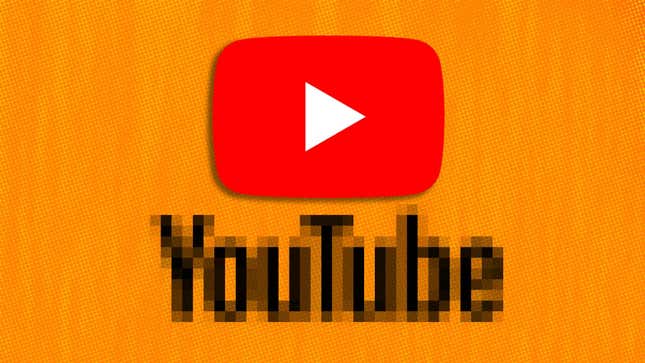
Good news for all the potty-mouthed YouTubers out there. A new update introduced by the monetization policy team makes some important changes, letting you cuss more often in your uploads and still collect that ad-revenue bag.
Back in November, YouTube updated its profanity usage and violent content regulations. The change treated all cuss words, from “ass” to “fuck” to “shit,” the same. If any of these words appeared in a thumbnail, title, the first seven seconds, or were uttered “coinsistently,” the video may be demonetized. However, things are a little different now. Conor Kavanagh, YouTube’s monetization policy lead, broke down the latest changes in a recent video.
Read More: Gaming YouTube Is In Turmoil Thanks To New Violence And Profanity Rules
Kavanagh detailed what YouTube is doing to address the feedback it received regarding the “stricter approach” to profanity. He said the criticism was heard loud and clear, especially regarding action taken retroactively against older uploads and how the content creator community wasn’t sufficiently informed on the impact of the changes.
“Upon reviewing our own enforcement data, we found the profanity policy resulted in a stricter approach than we intended,” Kavanagh said. “As a result, we are making the following changes to better reflect the goals of our initial update in November.”
YouTube won’t treat all cuss words the same anymore
Profanity won’t be treated equally anymore. “Moderate” cuss words, as Kavanagh put it, like “asshole” and “douchebag,” won’t tank the monetization of your upload, regardless of where in the video they’re used. Harder language, such as “fuck,” used in the first seven seconds or repeated throughout the video can run limited ads. Both instances would’ve received no ad revenue according to the rules of the November update. Any creator that cusses after the first seven seconds, whether that’s moderate or harder profanity, can still receive ad revenue—unless the language (especially if it’s harder) appears “repeatedly throughout the video.” Uploads with sailor’s tongue in the thumbnail or title can also receive ad revenue in a limited capacity, though the harsher the word, the less likely you are to be able to run ads on your content. There are some other tweaks Kavanagh touched on as well pertaining to how profanity in music is treated, essentially making it so that any songs you use with naughty words in the lyrics can still earn ad revenue, especially if they’re used in the backing track.
Read More: YouTube Declares Mega Man 2 Documentary Too Sexy For Kids
When reached out for a comment, a YouTube spokesperson pointed Kotaku to a blog post and help page further outlining the changes. However, a lot of what was found there was discussed by Kavanagh.
These are worthwhile changes for a platform riddled with folks who love to cuss up a storm. Gaming creators are especially at fault for their potty mouths for a variety of reasons, particularly due to the extemporaneousness of language that comes with Let’s Plays and unscripted content. At least now there will be less severe punishment.